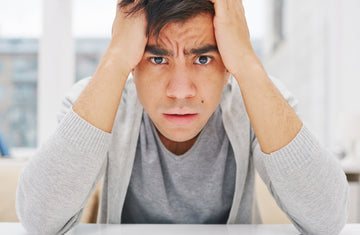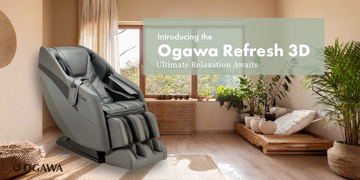Anxiety is a common problem with many individuals, but can anxiety cause muscle pain? Some studies have shown that anxiety may be linked to several physical ailments, including chronic pain in the muscles. An anxious state leads to an increase in baseline stress, which, in turn, translates into pain and discomfort. In this post, we’ll examine how anxiety might lead to muscle pain and what you can do about it.
Anxiety and Muscle Pain – Physical Manifestations
Muscle pain with anxiety happens to quite a lot of people worldwide. Anxiety covers a wide range of mental health conditions that lead to hyper-alertness, constant worry, apprehension, and fear. When this occurs, the body releases hormones like cortisol and adrenaline, preparing the body to fight or run. Hormones then enter the bloodstream, increasing a person’s heart rate, breathing, and muscle tension.
If the body remains in this state over a long time, the prolonged muscle tension can lead to anxiety muscle pain. The hyper-alertness causes muscles to tense and relax involuntarily, leading to muscle spasms, which cause pain. Mental health can impact your physical health, and since anxiety affects the mind, it will also have an impact on your physical well-being.
How Can Anxiety Cause Muscle Pain That Lingers?
Science has already shown us that the mind and the body are closely linked. It makes sense that anxiety would have a physical toll on the body. As mentioned above, the body enters a state of readiness when anxiety kicks in, leading it to remain hyper-aware of the world around it. Because the body’s muscles are ready for action, they are always tense so that you can respond immediately.
Soreness in muscles can stem from overuse. The body’s muscles can be either tensed or relaxed, and they have a recovery period. If they are being held in a tense state for a long time, damage can result, which shows up as the muscles feeling sore or tender. Anxiety can lead to long-term damage to muscle tissue because of the state of constant readiness.
Anxiety Attacks As a Symptom of Anxiety and Muscle Pain
One of the scariest situations to arise is an anxiety attack. This typically happens when something causes an already low level of anxiety to spike. Having an anxiety attack also takes its toll on your muscles as they tense and release rapidly and painfully. Numb or tingling sensations are familiar during an episode, and while the body will eventually settle down, the soreness from muscle contractions may remain for a more extended period. It is important to learn methods and techniques that help speed up muscle strain recovery when anxiety attacks create this tension.
Short-Term Relief from Anxiety and Muscle Pain
Now that we’ve learned about the causes of anxiety muscle pain, let’s discuss how to relieve muscle pain from anxiety. There are a handful of methods, including the functions of massage chairs, that have proven useful for living with anxiety and managing muscle pain that may stem from it:
- Mindfulness and relaxation techniques: Practice deep breathing, meditation, or yoga to relax tense muscles and reduce anxiety-induced tension.
- Regular exercise and stretching: Stretching exercises and regular cardio can help manage anxiety while allowing you to loosen tight muscles in your legs and calves. Exercise also helps relax the body, reducing the tension from stress.
- Heat therapy: Heat pads may improve blood flow to certain areas and lead to relaxation. Some massage chairs offer heat therapy built into their function.
- Massage therapy: Does massage help reduce anxiety and stress? Yes! Massage can have a positive impact on mental state by increasing blood flow, relaxing the muscles, and allowing you to experience pain relief. Massage chairs further reduce anxiety because of the flexibility of use and not requiring you to contact a professional to plan a session.
Integrating regular massage and heat therapy sessions can lead to a much-improved quality of life for someone who’s suffering from muscle pain stemming from anxiety. Massage chairs also come with a wide range of settings, allowing the owner to choose which massage suits them best.
Long-Term Treatment & Strategies for Muscle Pain from Anxiety
To date, there is no solid cure for anxiety. Many people who suffer from this disorder get professional help when things become unmanageable. For the most part, those of us who have a level of anxiety that still allows us to function have to seek ways to deal with the disorder in the long run.
Several coping strategies and treatment options can effectively manage and alleviate the discomfort that anxiety and muscle pain lead to:
- Regular exercise routine: Engaging in low-impact exercises such as walking, swimming, or yoga helps release endorphins, reducing muscle tension induced by anxiety.
- Mind-body techniques: Practicing mindfulness, deep breathing exercises, or progressive muscle relaxation aids in calming the mind and relaxing tense muscles.
- Professional help: Consulting a physical therapist or chiropractor for tailored exercises and treatments can alleviate chronic muscle pain.
- Massage therapy: There are distinct benefits to mental health linked to massage. Seeking professional massage sessions or using massage chairs offers targeted relief, easing anxiety-induced muscle tension.
- Stress management techniques: Adopting stress-reducing practices such as meditation, journaling, or seeking therapy helps manage underlying anxiety contributing to anxiety muscle pain.
Stress stemming from anxiety affects the body, leading to pain, discomfort, and many other physical conditions. Taking the time to deal with your anxiety early on avoids the problem of it becoming overbearing.
Massage for Relieving Muscle Pain from Anxiety
How to relieve muscle pain from anxiety? Massages are great for helping with muscle pain. However, a person can get several different types of massages. Among the most effective massages for getting relief from anxiety muscle pain that stems from anxiety include:
- Swedish massage: Widely known for its gentle, long strokes and kneading techniques, Swedish massage helps relax muscles and alleviate tension, promoting overall relaxation. The soothing motions can ease anxiety-induced muscle stiffness and soreness.
- Deep tissue massage: This technique focuses on deeper layers of muscle and connective tissue, applying firmer pressure to release chronic muscle tension. Deep tissue massage can effectively address persistent muscle pain caused by anxiety.
- Aromatherapy massage: Combining massage with essential oils, aromatherapy massage helps relax muscles and calm the mind, reducing anxiety-related muscle tension through the effects of both touch and scent.
These massage techniques provide an accessible way for anyone to deal with their muscle pain from anxiety. Moreover, they allow for a relaxing session that can help you unwind and deal with stressful interactions you may have during the day.
Muscle Pain from Anxiety is a Reality
Can anxiety cause muscle pain? The truth is that it can, and over time, it could lead to injuries, soreness, and discomfort. Finding relief when it comes to muscle pain from anxiety can be an ongoing journey. From practicing self-care at home to help with some of the more problematic symptoms to using a massage chair for a regular relaxation routine that doesn’t exacerbate your stress, there are treatment options for everyone.
If your anxiety persists, you should seek professional help. Doing so will help you have some control over your condition and make it feel much more manageable.





